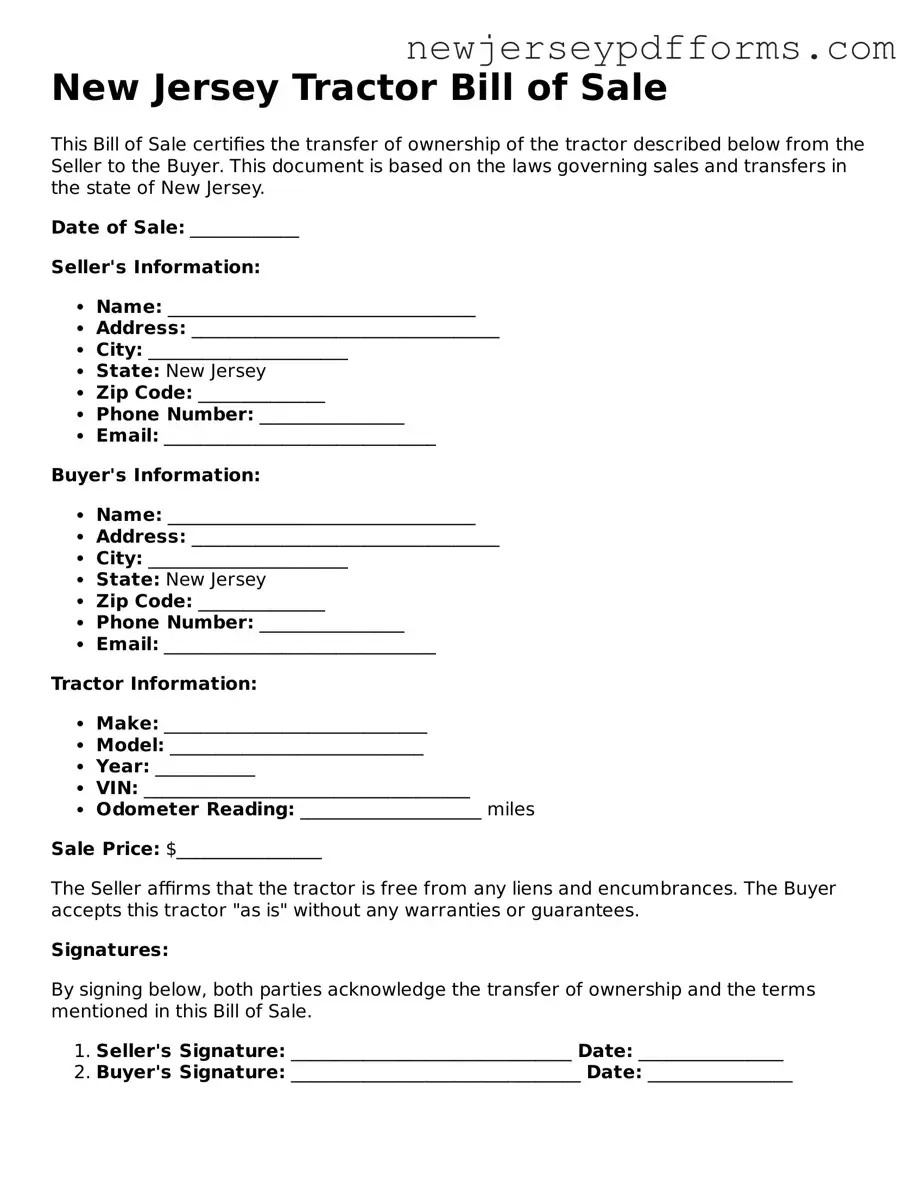Valid Tractor Bill of Sale Document for the State of New Jersey
The New Jersey Tractor Bill of Sale form is a legal document that serves as proof of the sale and transfer of ownership of a tractor. This form outlines essential details such as the buyer and seller's information, the tractor's description, and the sale price. Completing this form is crucial for ensuring a smooth transaction and protecting both parties' interests.
To fill out the form, please click the button below.
Open Editor Here

Valid Tractor Bill of Sale Document for the State of New Jersey
Open Editor Here

Open Editor Here
or
Download Tractor Bill of Sale PDF Form
Complete the form before time runs out
Edit your Tractor Bill of Sale online and complete it quickly.